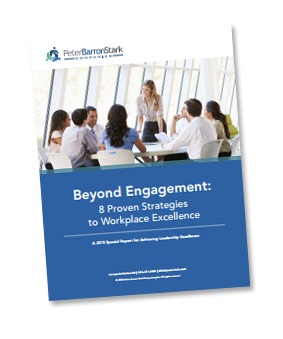Leadership
Why Good Leaders Make Bad Decisions
All great leaders make regrettable decisions and mistakes. In fact, if you’re not making mistakes or bad decisions, then you’re not taking enough risks or learning enough to continue growing as a leader.
When Sam Walton, the founder of Walmart, was asked by a reporter, “How did you become so successful?” Walton answered, “I’ve made a lot of good decisions.” When he was then asked how he learned to make good decisions, Walton replied, “By making a lot of bad decisions.”
Decisions, which can lead to either acts of genius or some pretty impressive mistakes, are judgements formed in our brain. Decisions are the product of choices, and choices make or break a leader. Every leader makes mistakes, but how you handle the aftermath of a mistake is critical. Great leaders ensure that poor choices don’t compound their mistakes. They also make sure they learn from their mistakes and develop actions to handle the situation differently in the future.
Why do some leaders make more mistakes and implement more bad decisions than others?
Past experience
One of the greatest attributes a leader can bring to a team or organization is their experience. If the environment, situation or information changes, however, then past experience can hinder the decision making process. J. Paul Getty said it best, “In times of rapid change, experience could be your worst enemy.”
Ego or Self-interest
Far too many leaders make decisions that cater to their self-interest. For instance, when the leader decides to change the organizational structure based on whom he likes or doesn’t like, rather than what structure will be in the best interest of the organization or department, then they’ve made a bad decision based purely on their personal agenda. Often, ego and self-interest are also the reason leaders are unwilling to admit that they made a poor decision or a mistake. Sometimes, managers even know that they’re making a bad decision, but their ego will not let them admit their mistake and navigate away from their doomed path.
Arrogance
Some leaders are convinced they are right, even in the face of conflicting information. When leaders fully believe they are right, they are less willing to listen to and incorporate other people’s information and expertise into their decisions. In 2013, Lululemon’s founder, Chip Wilson, stepped down as chairman after deciding to defend his company’s see-through yoga pants by stating that the pants were not the problem, but “Quite frankly, some women’s bodies just actually don’t work for it.”
Blind loyalty
When leaders allow blind loyalty to affect their decision making process, bad decisions are often the result. For instance, managers guided by blind loyalty may choose to ignore the deficiencies or inadequacies of one of their team members. Even when other team members point out the individuals in lack of accountability, the leader fails to take action and correct the team member’s performance problems.
Power
Researchers have concluded that people who accumulate power can develop unwarranted confidence in their own abilities. This is especially true when managers surround themselves with “yes” people who have built a reputation for agreeing with any decision the leader recommends.
How can leaders find a balance between not making enough mistakes, and avoiding bad decisions with serious consequences? Here are 8 tips to factor into your decision making process.
Be aware of unconscious biases
Although most leaders don’t like to admit it, they all have unconscious biases towards situations and about people that can affect their decisions. Easy examples of biases to be aware include, for instance, race and gender. Some less obvious biases include appearance, nationality, and religion. There are probably 100 things I have unconscious biases towards that I am not aware of. The more you are aware of your unconscious biases, the less likely they are to impact your ability to make good decisions.
Select strong team members
Strong team members are willing to tell you the truth, and will challenge and question the validity of your decisions and recommendations. Weak team members, or “yes” people who are fearful of losing their jobs, have no ability to stand up to a forceful boss and challenge the validity of their decisions. A strong team of individuals who think differently and independently will ultimately lead to better decisions and fewer mistakes.
Reward People Who Challenge Your Decisions
Great leaders are confident in their ability to make good decisions. Competence enables these leaders to solicit different opinions, engage in dialogue, and make the best possible decisions based on the information they’ve gathered. These leaders reward the people who are willing to step up and challenge the decision making process, and recognize their team members for contributing to a successful decision.
Heightened EQ Awareness
Some people will be quick to tell you that emotions should not be factored into the decision making process. I disagree – emotions absolutely need to be considered. Our emotions can make us believe we are right when, in fact, we are really wrong. It’s important for leaders to have a heightened awareness of their EQ, or emotional intelligence. The more you understand and are willing to accept yourself, your strengths and your weaknesses, and the value that others can contribute to your success as a leader, the better your chances are of making sound decisions that are not impeded by your emotions.
Seek Out New Experiences
New experiences help people think differently. When people think differently, they are able to consider more options and alternatives in their decision making process. In the infancy of social media, I fought the process. After utilizing social media and the different mediums available, I became a strong supporter of these new technologies. If I hadn’t decided to experience it, it would have been difficult for me to support and see the benefits of this new way of doing business.
Make the Decision
The downfall of a decision isn’t always the decision itself, but the failure to actually make a decision. You have to have the guts to make a decision, even in instances where you don’t have 100% of the information. Be cautious of analysis paralysis, and make the best decision possible with the information you have at hand.
Post Mortem
Bad decisions will happen, and I don’t recommend beating up bad decisions or dwelling on them indefinitely. However, it’s important to review the decision making process and look for ways to improve it. Develop a list of actions to determine what you can do differently next time you’re in the same situation to make a better decision.
Have a Backup Plan
The real test of great leadership is determined by how a leader responds when they realize they’ve made the wrong decision, and what actions they take. Great leaders know that even the best plans can go awry, and they always have a contingency plan to fall back on. The ability to recognize a problem and say, “Hey, no problem, I have a backup plan,” is what differentiates great leaders.
Mistakes and bad decisions are unavoidable facts of life, not just leadership. Leaders make decisions on a daily basis, and your ability to practice sound decision making strategies and respond appropriately when bad decisions inevitably do happen will set you apart as a great leader, and help you avoid making bad decisions that are beyond repair.
—
 Our new white paper outlines 8 proven strategies top-tier organizations use to create workplace cultures where the highest caliber of engaged talent thrive. Download your free copy of Beyond Engagement: 8 Proven Strategies to Workplace Excellence here: http://ow.ly/LRjtt
Our new white paper outlines 8 proven strategies top-tier organizations use to create workplace cultures where the highest caliber of engaged talent thrive. Download your free copy of Beyond Engagement: 8 Proven Strategies to Workplace Excellence here: http://ow.ly/LRjtt











2 Comments
mike hathaway
Good article, I plan to send it on to my staff of managers. thanks This is the first article that I have received in some time.
Peter Barron Stark
Hi Mike,
I’m glad the article provided value to you, and I hope it does the same for your staff of managers. Is it possible that you are only subscribed to our monthly Quest newsletter? We also send a weekly blog article with our Leadership Quote of the Week. If you are interested, you can subscribe to receive it here: https://www.peterstark.com/contact/newsletter-sign-up/
Thanks for reading!
Peter